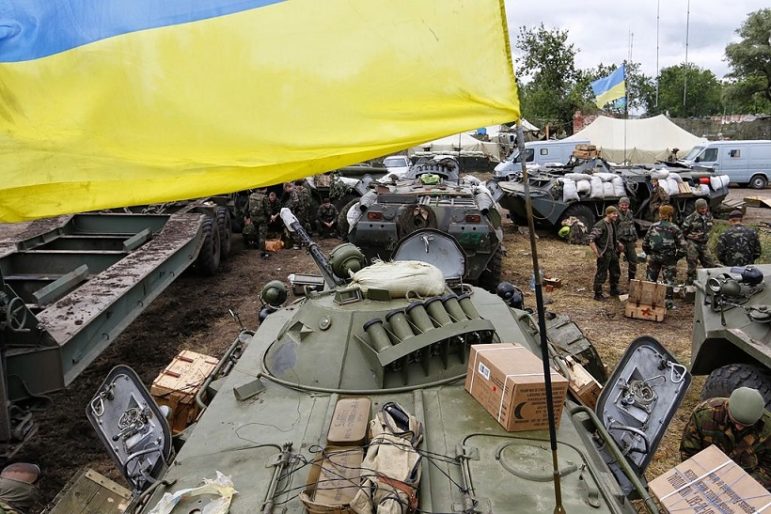
May 27, 2016, Wall Street Journal Blogs
John McCain said in a speech to the American Red Cross, “War is wretched beyond description, and only a fool or a fraud could sentimentalize its cruel reality.” Music does, however, have a way of shaping reality.
An unshakable music school endures war in a village in Eastern Ukraine; the basement of the school serves as a shelter from artillery fire. The nonprofit Spirit of America is providing the funds necessary to repair the building and embolden the school’s sense of mission and hope.
“Music helps fix the problems of children in war. We just want to continue the work we were doing before the war,” said Inna Vertsanova, the school’s willful proprietor and teacher.
In 2014, Russian-backed separatists began fighting Ukrainian government forces in eastern Ukraine. The population in the area divided between those who support Russia and the separatists and those more supportive of the Ukrainian government. Russia denies any direct role in the fighting. Lt. Col. Oleksandr Gvozdkov, a Ukrainian Army officer, identified the school—and the Russian-speaking Ms. Vertsanova—as an important symbol of national unity and resilience for the community. But, he said, with the Ukrainian government straining under the cost of the war, there was little money to support the school.
Founded in 2004, Spirit of America’s mission is to “support the safety and success of Americans serving abroad and the local people and partners they seek to help.” This nonprofit based in Los Angeles “is the only nonprofit organization that directly supports the safety and mission success of deployed U.S. personnel.”
Sign up for our free newsletters
Subscribe to NPQ's newsletters to have our top stories delivered directly to your inbox.
By signing up, you agree to our privacy policy and terms of use, and to receive messages from NPQ and our partners.
Spirit of America’s primary project in Ukraine is to support the Ukraine military’s Army FM project. According to its website, Spirit of America started out supporting the U.S. war effort in Iraq and Afghanistan, combining “flexible support and private-sector innovation to deliver economic and humanitarian assistance when and where our troops and diplomats say it’s needed most.”
There are many American nongovernmental organizations (NGOs) at work in Ukraine, and the U.S. government sees Ukraine as a strategic partner. USAID’s 48-page 2012–2016 Ukraine Country Development Cooperation Strategy in part explains why:
Ukraine, the largest country wholly in Europe, is critical to USAID’s efforts to assist in the transformation of the region by establishing democratic institutions and processes, supporting competitive economic growth and integrating into regional and global markets. The 2012‐2016 Country Development Cooperation Strategy (CDCS) for Ukraine focuses on a targeted development assistance program to support democratic processes, advance economic growth and prosperity, achieve greater integration into European structures, and support the goals of U.S. Presidential Initiatives in Global Health (GHI) and Global Climate Change (GCC).
NPQ once asked what donors and nonprofits should do in the face of political ambiguity and stark need in Ukraine, especially in support of their civil society. Ukraine’s president and U.S. leadership regarded Russia’s humanitarian aid as an act of aggression. Supporting Vertsanova’s music school serves as one response to the question of what to do for the people of Ukraine during their ongoing conflict.
Ukrainian children and their teacher steadfastly creating music amid the horrors of war evokes the memory of the “Cellist of Sarajevo,” who bravely played his instrument to encourage those hiding in the rubble during the Siege of Sarajevo. These children and adults are survivors, not fighters, and heroes all the more. Amid the inhumanity of war, they demonstrate art’s redemption. In the animal simplicity of war, their music gives us humanity in all its rich complexity and active defiance.—James Schaffer













